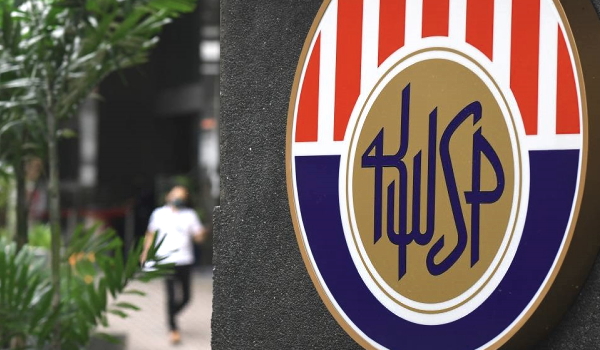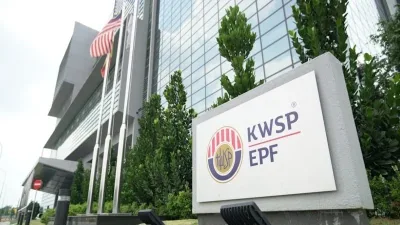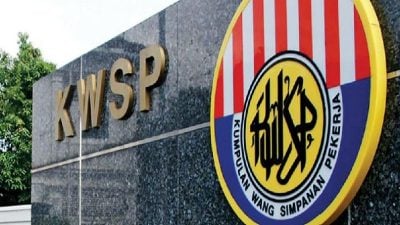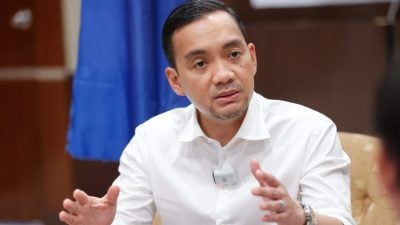The government should help improve the incomes of B40 households instead of allowing them to withdraw from their EPF accounts.
Prime minister Ismail Sabri Yaakob announced on Wednesday that EPF members can withdraw an additional RM10,000 from their own accounts. However, he said this should be done only if absolutely necessary, otherwise people should try not to do so. As for the details, finance ministry and EPF have said they will make the announcement soon.
Prior to this, finance minister Tengku Zafrul Tengku Abdul Aziz has reiterated that the government would not allow EPF members to withdraw any more money from their accounts, and said he would rather resign than compromise on wrong decisions.
The minister’s attitude is absolutely commendable. We believe that allowing EPF members to keep withdrawing from their accounts is never a good decision or policy from long term perspectives. What if after withdrawing these members are unable to put the money back in future? How are they going to survive when they get old and retire?
Meanwhile, for those lower- to middle-income households in B40 or even M40 groups, they may need to withdraw from their accounts to meet their immediate needs and will not think of what is going to happen when they retire 20 or 30 years later.
While some people might think this way, the government cannot afford to do the same! It must have the right strategy and need cooperation from the private sector, too.
Why must some EPF members make early withdrawals from their accounts? Simple. It’s poverty that forces them to do so.
After the pandemic, there will be more poor people in this country, while our severe chronic income disparity problem remains unresolved. We just need to see how low our minimum monthly wage and B40 household incomes are to have an idea how many poor people we have in this country.
Currently our minimum monthly wage is only RM1,200. Unless you live in a small town and ride a bicycle to work, people with this salary can hardly make ends meet in the city.
Our per capita GDP was around RM43,200 in 2021, and the government’s “minimum wage” is only about a third of that. Meanwhile, a B40 household’s monthly income is capped at RM4,850, not exactly enough for a family of four!
Even if these people still manage to keep their jobs after the pandemic, they will also have difficulty putting food on the table because of spiraling inflation. Their bank accounts? Hardly any savings! Withdrawing from EPF becomes their last resort for survival.

We can see from the statistics department’s data and Gini coefficient how serious the country’s wealth disparity is.
For Gini coefficient, from 0 to 1, the bigger the number the more uneven the country’s wealth distribution is. Gini coefficients for developed countries are normally between 0.24 and 0.36, but in Malaysia, it’s 0.428!
Statistics also show that Malaysia’s income inequality is very serious. In 2020, KL’s per capita GDP of RM115,000 is nine times as high as Kelantan’s RM13,600. The per capita incomes of other low-income states such as Perak, Terengganu, Sarawak, Sabah, Perlis and Kedah are less than a quarter of KL’s.
It should be noted that Gini coefficient is only measuring the income distribution of a country’s people in a particular year, not individual or household assets, and as such may not accurately reflect the cumulative wealth of the people of a country.
If the government does not have the right policy to tackle this problem, the poor will get poorer while the rich will get richer.
As such, the government’s urgent task is to help deliver the poor out of poverty, not come after the allegedly wealthy Chinese Malaysians because the real problem lies with the severe income disparity within the Malay community itself.
Withdrawing from EPF is not the best way to address the poverty problem. The government should increase the minimum wage to RM1,500 a month and improve the incomes of B40 households to help alleviate their financial burdens instead of allowing them to keep withdrawing from their EPF accounts. This, nonetheless, needs the cooperation from the business sector.
Former prime minister Najib Razak has proposed to increase the employers’ EPF contribution rate, but this has been instantly rejected by MEF president Dr Syed Hussain Syed Husman on the grounds this will excessively burden the employers still struggling to recover from the pandemic.
Well, if this is not possible this year, what about next year or the year after next? The government has spent near to a hundred billion ringgit to help local companies during the pandemic and it is now time for them to help the people!
Increasing the employers’ EPF contribution rate is not really that difficult after all. Assuming staff salaries make up 15% of a company’s operating expenses, 2% increase in contribution rate merely makes up 0.3% of the company’s operating expenses. And if the company makes 10% of net profit, then this increase is just 3% of its profit!
ADVERTISEMENT
ADVERTISEMENT








































